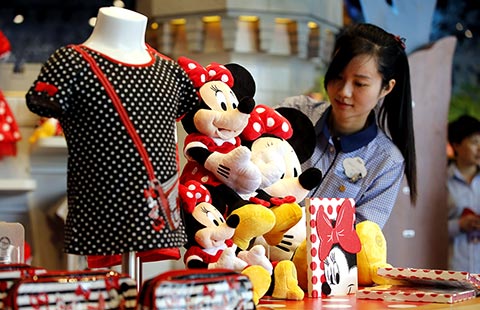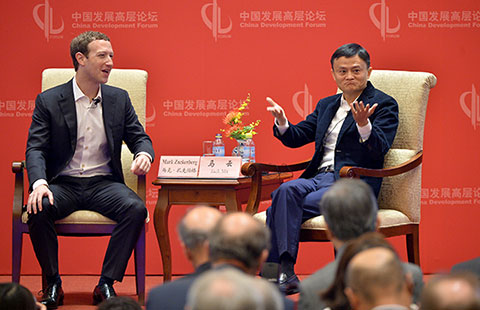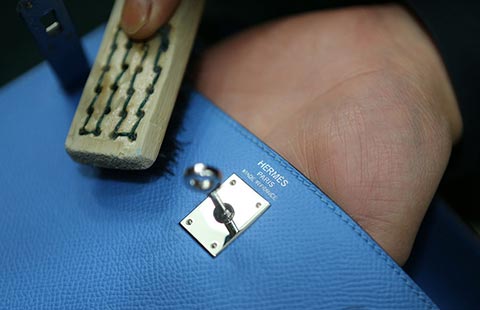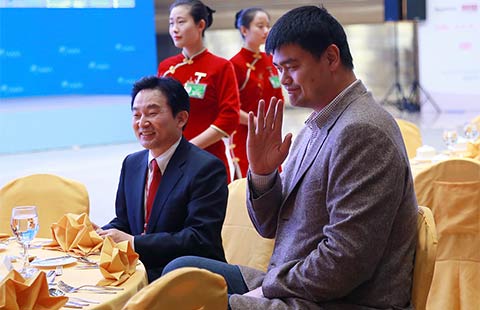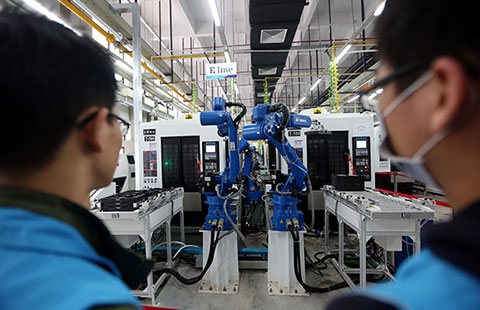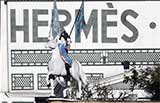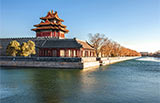New generation of luxury brands gets attention
By Liu Jie (China Daily) Updated: 2012-10-04 09:43Davy Ye's basic requirements for his clothes and accessories are a low-key logo or no logo at all; a unique design; comfortable fabric; and exquisite workmanship.
Louis Vuitton, Gucci, Omega, Versace and Hugo Boss? "No," said the 45-year-old managing director of a foreign communications company. "Although these luxury brands have been admired by some Chinese people, to others, like me, they are somewhat synonymous with parvenu - a rich second-generation, or of graft-taking and bribery bureaucrats in China."
On that day, Ye wore a suit custom-made in a specific tailor's shop, a Swiss-made and limited-edition Jean Richard watch, and custom-made shoes, made in an independent shoe studio in Milan. Concerning bags, he said he likes the Punch series from Bree, a German bag-and-case brand established in 1970.
Related reading: High-end Chinese brands coming soon
Ye's idea is shared by many Chinese people who are rich or who have a decent income, a good educational background and travel abroad frequently. It has resulted in slowed growth of traditional luxury brands, such as LV, Hugo Boss and Burberry, which entered the Chinese market just after the country adopted its opening-up policy in the 1980s and quickly gained in popularity among some newly rich people.
Meanwhile, some not-so-mass international brands have attracted the eyes of Chinese consumers. The brands can be divided into two groups - low-profile top luxury ones, and emerging brands created by independent designers, according to Li Yun, an analyst of domestic brokerage Guodu Securities.
Niche brands
Rupert Hoogewerf, chairman and chief researcher of Hurun Research Institute, said that Chinese rich people's tastes on luxury products have changed in recent years.
Hoogewerf is the founder and complier of the annual Hurun Rich List and has traced Chinese billionaires' fortunes and lives since 1999.
He said Chinese billionaires admired mass luxury brands in the early 2000s, but now they want something unique that can represent their own lifestyles and tastes.
"Chinese rich people liked to drink Chateau Lafite Rothschild," Hoogewerf said, referring to a famous French wine in China. "The success of this brand in China is mainly due to marketing instead of quality," he said.
But things are changing, he said, adding that he met a newly rich Chinese recently who said the most favorable wine brand is La Tache. Hoogewerf, who has a great deal of knowledge of luxury products, had no idea about La Tache and found out it is a superpremium brand that originated in Bourgogne, France, only after researching it on Google.
"More and more rich Chinese are seeking top luxury brands that have long history, top prices and a low-key manner," Hoogewerf said.
Meanwhile, around the world, a small group of in-the-know footwear aficionados, including world leaders (Barack Obama) and movie stars (Uma Thurman), can enjoy the quality of the made-to-order shoes of Italy-based Silvano Lattanzi.
Priced at more than 47,000 yuan ($7,440) in China, the Silvano Lattanzi custom-made shoes need complicated measurements, a meticulous and several-month-long shoe making process in Italy, and several fittings.
"No logo at all. Only your name can be carved after you have ordered 20 pairs of shoes," said Roberto Jiang, manager of the brand's Beijing store, which opened in the Peninsula Beijing Hotel in 2008. Now Silvano Lattanzi has three China stores, with the other two in Shanghai and Hangzhou. Sales grow faster in China than in other nations.
Emerging brands
Compared with billionaires, people with decent incomes in China are eyeing some globally emerging brands and seeking products of independent designers.
Jiang Bingyu said she, like Ye, loves the handbag-maker Bree. "I first met it in an outlet in Germany and was impressed by its simple and practical design, soft leather fabric and rich colors," said the 35-year-old editor of a business magazine.
- Small can be beautiful for luxury brands
- Rentals of top-brand goods
- Luxury goods become less popular as economy slows
- Luxury goods driving commercial property
- Chinese snap up luxury products
- Luxury sales aid world economy
- Luxury goods demands grow in smaller cities
- Raise awareness of domestic brands
- New media to play major role in promoting holistic tourism
- China to maintain stable economic growth with reforms in place: Russian experts
- Overseas observers speak highly of Chinese premier's speech at Boao forum
- Kyrgyz bank launches co-badged China UnionPay card
- China's social security fund posts higher investment return
- Chinese state firms' profits slump further
- Central bank sets up anti-poverty relending
- More than 30 countries waiting to join AIIB
